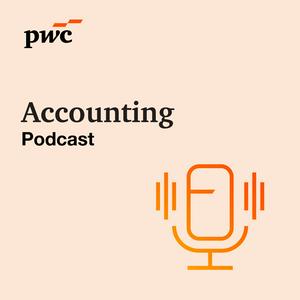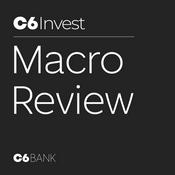403 episódios
- California’s climate disclosure laws are entering a critical phase as key compliance deadlines approach. SB 253 (the Climate Corporate Data Accountability Act) requires companies to report greenhouse gas (GHG) emissions in accordance with the Greenhouse Gas Protocol, while SB 261 (Greenhouse gases: climate-related financial risk) mandates disclosure of climate-related financial risks aligned with the Task Force on Climate-related Financial Disclosures (TCFD) or an equivalent framework. Although SB 261 is currently on hold due to litigation, companies should continue preparing. In this episode, we break down the latest developments from the California Air and Resources Board (CARB), what companies need to report in 2026, and how to prepare amid ongoing regulatory and legal uncertainty.
In this episode, we discuss the latest developments from the California Air Resources Board (CARB), 2026 reporting requirements, and how to navigate ongoing regulatory and legal uncertainty. In this episode, we break down the latest developments from the California Air and Resources Board (CARB), what companies need to report in 2026, and how to prepare amid ongoing regulatory and legal uncertainty.
In this episode, we discuss:
2:50 Deadline for SB 253 (GHG) reporting
4:39 Reporting requirements for SB 253
13:21 Deadline for SB 261 (climate risk) reporting
16:52 Reporting requirements for SB 261
20:43 What to expect from CARB in 2026
24:20 Applicability considerations and key exemptions
For more on the California sustainability laws, read our In depth, California climate reporting–SB 253 and SB 261 explained.
Looking for the latest developments in sustainability reporting? Follow this podcast on your favorite podcast app and subscribe to our weekly newsletter to stay in the loop for the latest thought leadership on sustainability standards.
About our guest
Logan Redlin is a director in PwC’s National Office who is focused on thought leadership strategy and content development related to accounting and financial reporting, sustainability reporting, and standard setting. Prior to this role, Logan spent 15 years in the audit practice, serving both public and private companies with a primary focus on asset management and real estate.
About our guest host
Diana Stoltzfus is a sustainability partner in the Professional Practice Group within the National Office. Diana helps to shape our firm’s perspective on regulatory matters, responses to rulemakings, and policy development and implementation related to significant new rules and regulations. Diana was previously the Deputy Chief Accountant in the Office of the Chief Accountant (OCA) of the Professional Practice Group in the OCA at the SEC. She focused on providing guidance related to auditing, independence, and internal controls.
Transcripts available upon request for individuals who may need a disability-related accommodation. Please send requests to [email protected].
Did you enjoy this episode? Text us your thoughts and be sure to include the episode name. - A video of this podcast is available on YouTube, Spotify, or PwC’s website at viewpoint.pwc.com.
It’s that time of year, with many focused on year-end reporting. After wrapping up our Year-end toolkit series, we revisit another set of conversations that are especially relevant right now. We’re re-releasing the kickoff episode from our SEC now series.
This first episode sets the stage with an overview of current developments shaping SEC reporting. Our guests unpack recent leadership changes, the evolving rulemaking agenda, reporting themes, and key trends in SEC comment letters.
In this episode, we discuss:
1:59 – SEC leadership updates
7:28 – Rulemaking agenda and expected priorities
14:25 – Rulemaking challenges: staff capacity and shutdown constraints
16:57 – SEC comment letter themes and focus areas
For more on this topic listen to the other episodes in our SEC now and Inside SEC reporting series.
Be sure to follow this podcast on your favorite podcast app and subscribe to our weekly newsletter to stay in the loop.
About our guests
Scott Feely is a PwC National Office Deputy Chief Accountant. He has over 30 years of experience supporting clients as they address the SEC and financial reporting implications of their capital markets and merger and acquisition-related activities.
Lindsay McCord is a PwC National Office partner specializing in matters related to the SEC and the capital markets. Prior to joining PwC, Lindsay spent over 15 years at the SEC, most recently as the Chief Accountant in the Division of Corporation Finance. In this role, Lindsay led an accounting team in providing technical accounting and reporting support to the Division, including SEC rulemaking, interpretation, and guidance.
About our guest host
Kyle Moffatt is PwC’s Professional Practice leader, leading a team responsible for working with standard setters and regulators as well as delivering brand-defining thought leadership and educational materials. He also consults with engagement teams and audit clients on SEC reporting matters. Before PwC, Kyle spent almost 20 years with the SEC, most recently as Chief Accountant and Disclosure Program Director in the Division of Corporation Finance.
Transcripts available upon request for individuals who may need a disability-related accommodation. Please send requests to [email protected].
Did you enjoy this episode? Text us your thoughts and be sure to include the episode name. - It’s that time of year, with many focused on year-end reporting. After wrapping up our Year-end toolkit series last week, we revisit another set of conversations that are especially relevant right now. We’re re-releasing the kickoff episode from last year’s Reporting reset series.
This first episode sets the stage for the series by covering foundational reporting principles, key disclosure considerations, notable differences between public and private company financial statements, and accounting changes and error corrections. Links are provided to other episodes in this presentation and disclosure series.
In this episode, we discuss:
1:25 – Foundational GAAP and SEC requirements for financial statement presentation
3:09 – Determining appropriate reporting periods
5:25 – Balance sheet presentation: classification, required disclosures, and best practices
11:44 – Income statement presentation: structure and key considerations
21:31 – Accounting changes, estimates, and error corrections
29:53 – Subsequent events: recognition and disclosure
For more on this topic read the following chapters in our Financial statement presentation guide:
Chapter 1: General presentation and disclosure requirements
Chapter 2: Balance sheet
Chapter 3: Income statement
Chapter 28: Subsequent events
Chapter 30: Accounting changes
Be sure to follow this podcast on your favorite podcast app and subscribe to our weekly newsletter to stay in the loop.
About our guest
Pat Durbin is a PwC National Office Deputy Chief Accountant. He has over 30 years of experience consulting with our clients and engagement teams on complex accounting matters, including issues related to revenue, compensation, income taxes, and inventory under both US GAAP and IFRS.
About our guest host
Diana Stoltzfus is a partner in PwC’s National Office who helps to shape PwC’s perspectives on regulatory matters, responses to rulemakings and policy development, and implementation related to significant new rules and regulations. Prior to rejoining PwC, Diana was the Deputy Chief Accountant in the Office of the Chief Accountant (OCA) at the SEC where she led the activities of the OCA’s Professional Practices Group.
Transcripts available upon request for individuals who may need a disability-related accommodation. Please send requests to [email protected]
Did you enjoy this episode? Text us your thoughts and be sure to include the episode name. - We continue our year-end toolkit series with insights on key areas of the year-end accounting and reporting process. Today’s episode focuses on the finance team’s engagement with the audit committee, which faces a packed agenda and expanding oversight responsibilities. We explore how management can strengthen collaboration with those charged with governance, streamline reporting, and address emerging issues such as AI, enterprise risk management, and transformation initiatives.
In this episode, we discuss:
1:18 – Strengthening management/audit committee communication and collaboration
10:10 – Key year-end issues finance teams should be prepared to address
15:02 – Oversight of AI: risks, opportunities, and controls
21:33 – Enhancing enterprise risk oversight
27:35 – Navigating the evolving cyber risk landscape in the age of AI
36:05 – Elevating proxy disclosures
For more, watch the replay of our Year-end audit committee webcast and read our publication, Your year-end audit committee guide.
In case you missed it, check out the previous episode in this year-end miniseries:
Year-end toolkit: Accounting and reporting reminders for 2026
Year-end toolkit: Materiality assessments
Year-end toolkit: Cash flow classification
Be sure to follow this podcast on your favorite podcast app and subscribe to our weekly newsletter to stay in the loop.
About our guest
Stephen Parker is a partner in PwC’s Governance Insights Center, which strives to strengthen the connection between directors, executive teams, and investors by helping them navigate the evolving governance landscape. With more than 30 years of experience, Stephen has advised boards of directors on a variety of complex financial reporting matters. Stephen’s client service experience includes energy and utility companies, financial services companies, and nonprofits.
About our guest host
Diana Stoltzfus is a partner in PwC’s National Office who helps to shape PwC’s perspectives on regulatory matters, responses to rulemakings and policy development, and implementation related to significant new rules and regulations. Prior to rejoining PwC, Diana was the Deputy Chief Accountant in the Office of the Chief Accountant (OCA) at the SEC where she led the activities of the OCA’s Professional Practices Group.
Transcripts available upon request for individuals who may need a disability-related accommodation. Please send requests to [email protected]
Did you enjoy this episode? Text us your thoughts and be sure to include the episode name. - We continue our year-end toolkit series sharing insights on key areas of the year-end accounting and reporting process. In this episode, we focus on the statement of cash flows—an area that remains critical to investors and continues to get focus from regulators. We discuss recent SEC comment letter observations, practical considerations for complex transactions such as debt restructurings, payment processing arrangements, and business combinations; we also highlight reminders and best practices to help companies navigate year-end reporting.
In this episode, we discuss:
1:05 – Overview of the statement of cash flows and key reminders
3:46 – SEC comment letter themes
7:52 – Debt restructurings
15:21 – Payment processing arrangements
20:27 – Business combinations
32:56 – FASB project on targeted improvements to the statement of cash flows
For more on the statement of cash flows, see Chapter 6 of our Financial statement presentation guide.
Be sure to follow this podcast on your favorite podcast app and subscribe to our weekly newsletter to stay in the loop.
About our guests
Suzanne Stephani is a director in PwC’s National Office specializing in the statement of cash flows as well as the application and interpretation of the accounting guidance related to financing, leasing, and foreign currency transactions.
Christopher Gerdau is a partner in PwC’s National Office specializing in accounting for financial instruments and banking-related topics. Chris also conducts technical reviews of SEC filings and provides technical support to PwC’s practice offices. Chris’s client service expertise includes the banking, capital markets, and insurance industries.
About our guest host
Diana Stoltzfus is a partner in the National Office who helps to shape PwC’s perspectives on regulatory matters, responses to rulemakings and policy development, and implementation related to significant new rules and regulations. Prior to rejoining PwC, Diana was the Deputy Chief Accountant in the Office of the Chief Accountant (OCA) at the SEC where she led the activities of the OCA’s Professional Practices Group.
Transcripts available upon request for individuals who may need a disability-related accommodation. Please send requests to [email protected]
Did you enjoy this episode? Text us your thoughts and be sure to include the episode name.
Mais podcasts de Negócios
Podcasts em tendência em Negócios
Sobre PwC's accounting podcast
Listen in as PwC specialists discuss today’s most compelling accounting, reporting, and business issues. Whether financial reporting or sustainability reporting, each episode is packed with insights you won't find anywhere else.
Site de podcastOuça PwC's accounting podcast, Do Zero ao Topo e muitos outros podcasts de todo o mundo com o aplicativo o radio.net

Obtenha o aplicativo gratuito radio.net
- Guardar rádios e podcasts favoritos
- Transmissão via Wi-Fi ou Bluetooth
- Carplay & Android Audo compatìvel
- E ainda mais funções
Obtenha o aplicativo gratuito radio.net
- Guardar rádios e podcasts favoritos
- Transmissão via Wi-Fi ou Bluetooth
- Carplay & Android Audo compatìvel
- E ainda mais funções


PwC's accounting podcast
Leia o código,
baixe o aplicativo,
ouça.
baixe o aplicativo,
ouça.







































